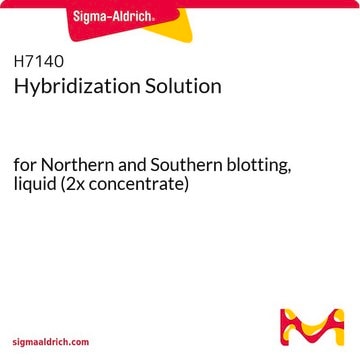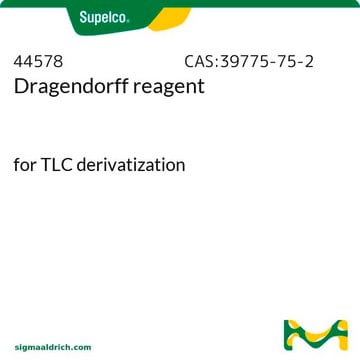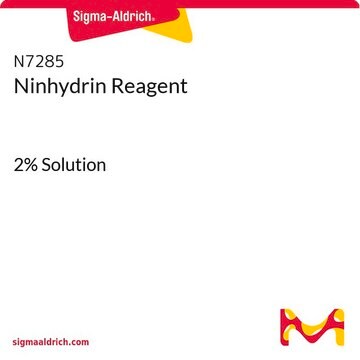M1942
Molybdenum Blue spray reagent
liquid
About This Item
Productos recomendados
product name
Molybdenum Blue spray reagent,
description
1.3% molydbenum oxide in 4.2 M sulfuric acid
Molybdenum Blue reagent
Quality Level
form
liquid
technique(s)
thin layer chromatography (TLC): suitable
application(s)
diagnostic assay manufacturing
hematology
histology
storage temp.
room temp
General description
Application
signalword
Danger
hcodes
Hazard Classifications
Carc. 2 - Eye Dam. 1 - Met. Corr. 1 - Skin Corr. 1A
Storage Class
8B - Non-combustible corrosive hazardous materials
wgk_germany
WGK 1
flash_point_f
Not applicable
flash_point_c
Not applicable
ppe
Faceshields, Gloves, Goggles, type ABEK (EN14387) respirator filter
Certificados de análisis (COA)
Busque Certificados de análisis (COA) introduciendo el número de lote del producto. Los números de lote se encuentran en la etiqueta del producto después de las palabras «Lot» o «Batch»
¿Ya tiene este producto?
Encuentre la documentación para los productos que ha comprado recientemente en la Biblioteca de documentos.
Los clientes también vieron
Nuestro equipo de científicos tiene experiencia en todas las áreas de investigación: Ciencias de la vida, Ciencia de los materiales, Síntesis química, Cromatografía, Analítica y muchas otras.
Póngase en contacto con el Servicio técnico

